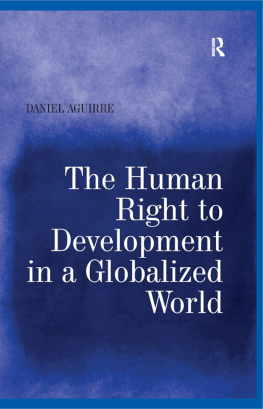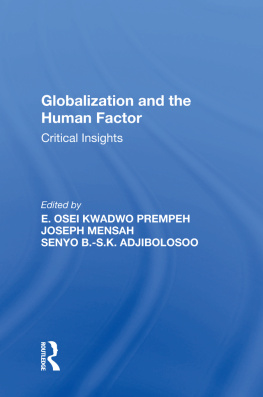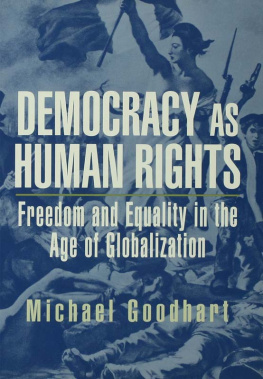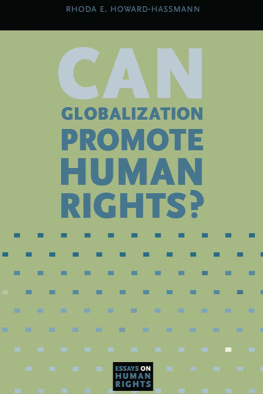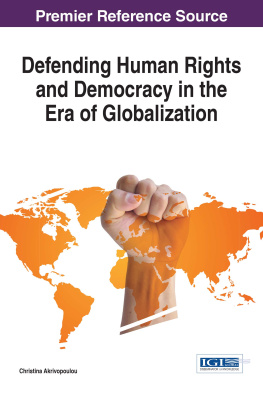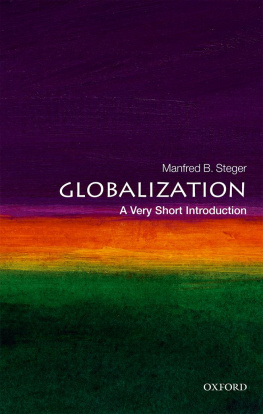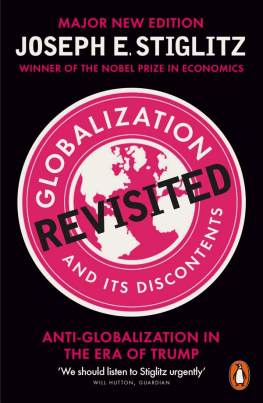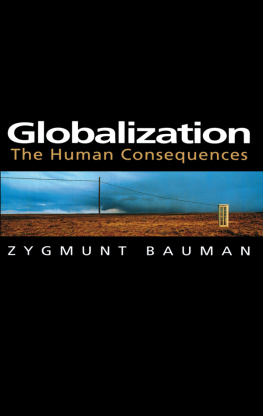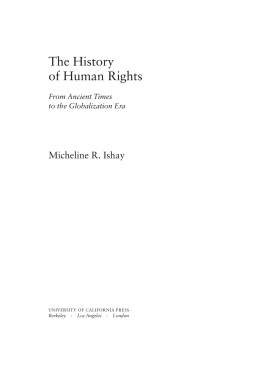How Much Globalization Can We Bear?
First published in German as Wieviel Globalisierung vertrgt der Mensch? by Rdiger Safranski Carl Hanser Verlag Mnchen Wien 2003.
This translation and preface first published in 2005 Polity Press
The right of Rdiger Safranski to be identified as Author of this Work has been asserted in accordance with the UK Copyright, Designs and Patents Act 1988.
Polity Press
65 Bridge Street
Cambridge CB2 1UR, UK
Polity Press
350 Main Street
Malden, MA 02148, USA
All rights reserved. Except for the quotation of short passages for the purpose of criticism and review, no part of this publication may be reproduced, stored in a retrieval system, or transmitted, in any form or by any means, electronic, mechanical, photocopying, recording or otherwise, without the prior permission of the publisher.
ISBN: 978-0-7456-8350-8
A catalogue record for this book is available from the British Library.
For further information on Polity, visit our website: www.polity.co.uk
CONTENTS
Preface: Understanding Globalization Between Sociology and Philosophy
Globalization is certainly one of the most widely debated topics of our time. The issue arises wherever one looks, and one wonders whether anything new remains to be said. Rdiger Safranskis account of the issue leads to the instant, if surprising, realization that the answer to this question is most definitely yes.
Individualization has frequently been proposed in sociological debate, as the conceptual counterpart to globalization. It has often seemed that, once these processes were fully developed, all that would be left would be individual human atoms dispersed on a globe without any political, economic or cultural structures. But regardless of whether that theory is based on any good and valid observation, nobody has drawn the conclusion that suddenly emerges as evident after reading Rdiger Safranskis exploration of the issue: globalization, if it occurs, means a radical change in the human condition. It brings human beings into direct confrontation with the world in its totality indeed, one might say that it returns to such a confrontation, after centuries of attempts to build institutions that mediate between human beings and the world. Almost unnoticed in the broader debate, the scenario of globalization entails areturn in new and radical guise of the time-honoured question of the ways of being-in-the world of human beings.
Globalization means that we humans, as self-relating animals, must also learn to relate to the whole. But what is this whole, out of which we cannot step, but in relation to which we nevertheless need to gain some distance, in order to exercise our powers of reason, our claim to make things around us intelligible? This question is the point of departure for the short, but provocative intellectual journey on which Safranski takes his readers. The adventures on the journey are plenty, and rewarding, and the author is the only guide we need. It is useful, however, to pose two questions briefly at the outset: why is it that much of the better-known literature on globalization fails to address this possible novelty in the human condition? And: how does the account that follows relate to the broader debates?
Action, reflexivity and boundaries under conditions of globalization
When it emerged almost two decades ago, the topic of global-ization was a disturbing one. It questioned established wisdom both in the intellectual sphere and in the realm of political action. Associated with the diagnosis of the decline of the nation-state and the dissolution of boundaries in all walks of social and political life, it even challenged the very idea of human agency, be it individual or collective. That is to say, action seemed to presuppose not only an actor who somehow stands out from the world upon which he or she acts, but also a rather solid structure for that world, so that any intervention in it would have somewhat predictable effects. A globalized world, however, appeared at best fragmented in a disorderly way and at worst in a permanent state of flux and out of reach. In turn, the inhabitants of that world, who were previously seen as easily identifiable members of a class, nation or gender, were now seen as individuals in the radical sense that they could be certain neither of their ties to other human beings nor of their own self and identity.
Such a world is, however, uninhabitable. And that insight seems to be the main reason why this early, disturbing perspective on globalization has gradually given way to a more orderly intellectual landscape. Broadly and somewhat schematically, there are three major ways of diagnosing the global constellation that started to emerge after the end of the Cold War and, let us not forget, after colonialism (chapters 2 and 3 below address the global situation and the way in which it is usually interpreted). Most closely associated with the very meaning of the term globalization are, first, the observers who hold that we are in the process of creating actual global structures for all major social practices most importantly an effective world market for many products and a relatively homogeneous global (mass) culture. Significantly, this view is held in two versions, an affirmative and a critical one. The former is dominant among proponents of neoliberal deregulation projects; the latter points to an increasingly globalized resistance to such projects, most prominently voiced in the works of Michael Hardt and Antonio Negri.
Second and similarly consistently, other diagnoses insist on the persistence of cultural particularity in the world, often even suggesting that globalization tendencies may provoke the hardening of such cultural forms. As used to be the case with theories of nationalism and the nation-state, such reasoning is most often accompanied by the idea that cultural communities should give themselves a political form. The rise of communitarianism in political theory pre-dated the globalization debates and indeed at its outset was related solely to national communities. From the early 1990s onwards, however, this theme was integrated into a new culturalist diagnosis of the time, finding its most widely debated contribution in Samuel Huntingtons idea of a clash of civilizations. While this concept has rightly been criticized as intellectually and politically conservative, more innovative uses of what may be broadly understood as cultural thinking have also emerged in the context of the globalization debate, the most interesting of these probably being Johann Arnasons renewal of civilizational analysis in his recent Civilizations in Dispute.
Despite the richness of reasoning in both these points of view, and particularly in the latter one, what is most characteristic of the current debate is that the basic theoretical positions adopted can be criticized relatively easily on conceptual grounds. It is, after all, not very difficult either to show that numerous social practices, even many economic ones, hardly globalize at all, or to raise doubts about the idea that social life naturally occurs within relatively closed and coherent cultural containers. As a consequence, a third position has emerged and consolidated as something like a critical mainstream for reasons I will explain, this is not an oxymoron in the globalization debate. It might be said that this third position emerged as the globalist take on the sociological debate about reflexive modernization, most strongly associated with Anthony Giddens and Ulrich Beck (and discussed as the third variant of globalism in chapter 3 below).


